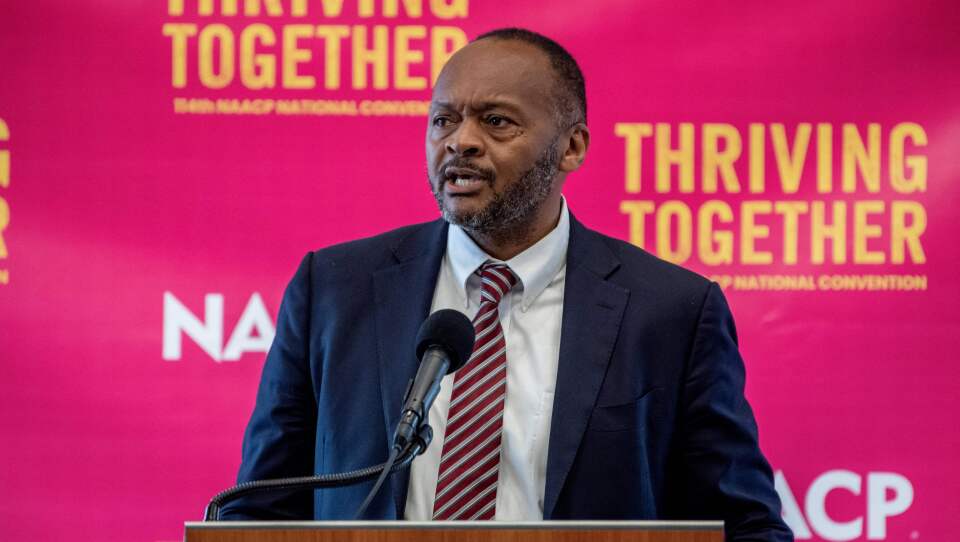The 114th NAACP National Convention will be held in Boston this month for the first time in four decades, bringing together thousands of people in Boston under the theme of “Black resistance” to celebrate and build collective power.
Michael Curry, who sits on the NAACP’s national board of directors and chairs the Advocacy & Policy Committee, worked with former Mayor Marty Walsh to bring the convention to Boston back in 2014. It’s an effort that almost didn’t pay off.
“The sticking point was the hotel rooms,” Curry explained on Boston Public Radio Friday. “Unlike any other convention you go to, where there are businesspeople and you can pay $300 or $400 a night for a hotel, this is common, everyday folk like my mother. They’re coming by car, bus, train to the convention — they can’t do that.”
But, working with Walsh, he created a fund that would offset the price of the hotels for attendees.
Hosting the convention in Boston for the first time in decades also gave Curry the opportunity to revisit the NAACP’s beginnings. The third-ever meeting of the Niagara Movement, the NAACP’s precursor, was held in Boston — and it was the first meeting that allowed Black women to participate.
“The first president of the national NAACP in 1909 was also the Boston branch president, a white Roxbury lawyer. People don’t know that history,” Curry said, a man named Moorfield Storey. “The bylaws of the National NAACP were founded on the Boston branch's bylaws because we had already started developing our stuff here early.”
More Local News
He explained the rich history the city has with the NAACP, including the story of William Monroe Trotter who was a journalist in Boston and how he mobilized marches and rallies with the NAACP to try to ban the film “Birth of a Nation” from the city in 1915. The founders of the Niagara Movement, too, were Bostonians — and, according to Curry, the group “started really relying on Boston talent to lead that movement.”
“The reality is, if we know the beginning well, the end won’t trouble us. That's the African proverb,” Curry said. “We don’t know the beginning well. So knowing the beginning well is knowing about the history of this country, knowing about the history of this city.”
He emphasized that history offers up valuable insights into how the present moment came to be.
“If we want to understand why Boston is viewed as a racist city, and it is today ... the difference is, you could walk to an area like Copley and feel like you don’t belong,” he said. “They’ll look at you different.
“When you go to Copley, Cleveland Circle — name it! — Coolidge Corner, you don’t see Black people!” Curry continued. “You go to downtown Boston, you don’t see Black people. Or the Seaport area. What that says to me, having been a born-and-bred Bostonian, is we haven’t been welcomed in those places.”
In acknowledging the existence of racism in Boston, Curry also pushed for the need to confront it.
“There's a racism [in Boston] that's always been here. Let's face it — let's deal with it — and understand that we've not always been inclusive.”
Vice President Kamala Harris, Robert Kraft, Meek Mill and more will be featured at the convention. The NAACP will be hosting free events in The Hub at the Boston Convention & Exhibition Center from July 28 through July 30.








